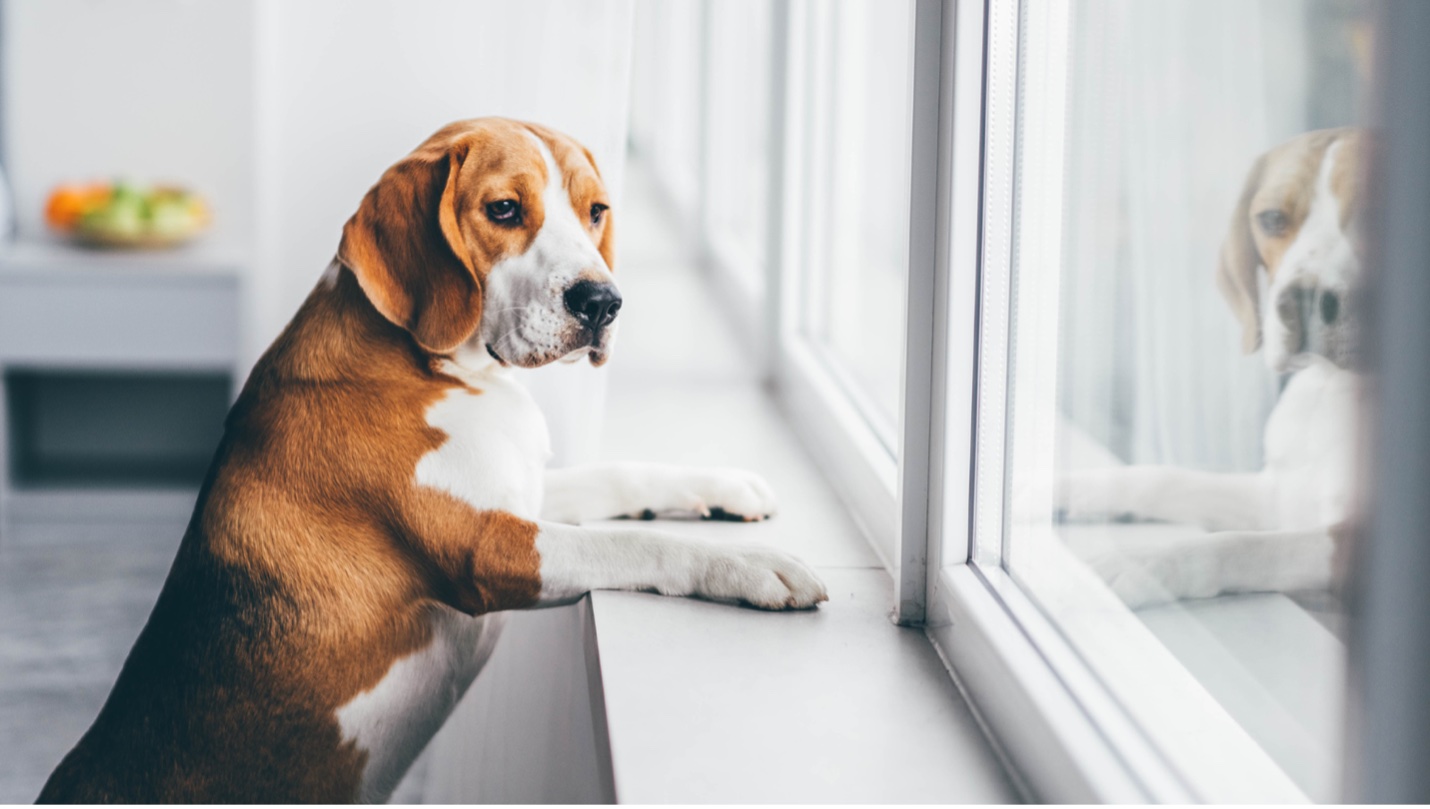Many American dog owners report their dog has separation anxiety. These dogs, when left alone often vocalize, destroy property or urinate and defecate in the house. Dogs pegged with separation anxiety are assumed to exhibit these behaviors due to the stress from the owner’s absence. Although anxiety over being left alone may trigger the behaviors, other unmet needs cause a continuance of the behavior. A group of scientists at the University of Lincoln in England identified “a focus on getting away from something in the house, wanting to get to something outside, reacting to external noises or events, and a form of boredom” as the reasons for continuance. Treating separation anxiety can be challenging, many cases require trial and error. Careful consideration of a patient’s temperament, age, health, and training can be helpful for finding a solution.
Different breeds have different exercise requirements. Owners should make themselves familiar with the requirements of their pets. Huskies, for example, require at least 2 hours of vigorous activity a day. Without physical and mental stimulation, they may turn to destructive behaviors. Owners should, if possible, make exercise a part of their dog’s morning routine. Many cities have individuals who offer dog walking services, or even doggie day care businesses. Both options should be considered for owners whose schedules or health do not allow them to exercise alongside their pet every day.
As scientists have proven, boredom can enhance the chance of destructive behavior. If your pup is getting enough exercise, try introducing some new, safe toys. There are many toy choices for dogs. Kong’s filled with treats, puzzle toys that include a hidden treat for dogs to find, even pieces of dog food frozen into ice are popular choices. Rawhide free chew bones give your pup the ability to gnaw on something safe. Many dogs love chasing after wobble balls, the strange noises pique their curiosity.
Very young or very old dogs may struggle while their owners are away. Puppies are very likely to chew and get into household items that can be dangerous to them. Young dogs must be in a crate when they cannot be watched. They should be given grace when it comes to urine and stool accidents in the house. It takes months of consistent work to solidify house training. Generally, a puppy can only hold its bladder for an hour for every month it is old. Older dogs can develop dementia, just like older humans. They may forget the rules of the house they once knew. They may vocalize due to frustration or confusion. They may lose control of their ability to hold urine and stool, or their arthritis may inhibit their ability to get up and to the door fast enough. Dogs of any age may develop urinary tract infection or have intestinal inflammation. If your previously house-trained dog is urinating or defecating in the house a trip to your veterinarian is warranted.
Creating a safe space, and sense of security in your home is important. Your dog should have an area of your home where he feels safe. Kennel training your dog is highly recommended. Puppies, young dogs, and newly introduced dogs should be kenneled while the owners are away. If dogs are reactive to other pets in the household, they should be kept separately. If dogs are reactive to outside noises and activities, they should be kept in an inner room away from windows and entry doors. Dogs prone to dangerous activities such as breaking out of their kennels, breaking through doors or windows could benefit from retraining. Work with your dog on kennel training, relax or settle while you are home. VCA offers advise on how to work on these skills Dog Behavior and Training – Teaching Calm – Settle and Relaxation Training | VCA Animal Hospitals (vcahospitals.com) . Contacting a professional trainer or your veterinarian are other valid options if you’re unable to work with your dog or frustrated with your progress. Pharmaceuticals may be used to calm patients. Adaptil, a dog appeasing pheromone, can also be used to help with your dog’s anxiety.
Unfortunately, the solutions for “separation anxiety” can be as diverse as the cause for the unsavory behaviors exhibited by your dog. Detective work, trial and error and professional advice will help you find a solution that works for you and your furry best friend.
Your Friendly Team,
